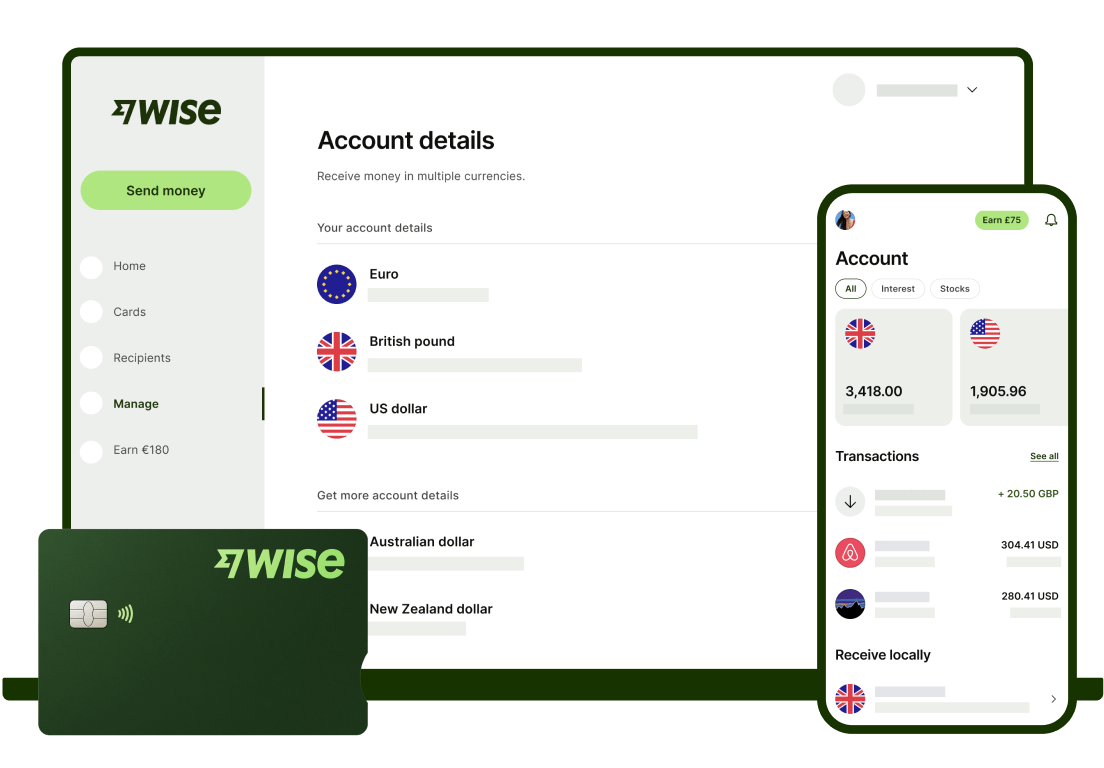Importing from Spain to the UK: Complete Business Guide
Read our complete business guide on importing from Spain to the UK, covering everything from customs to shipping methods.

Planning to do business in India? If you’re a UK company selling to Indian clients or with a branch in India, you’re going to need to know about invoicing customs and rules there.
In this guide, we’ll be looking at e-invoicing in India, including what it is and how it affects business-to-business (B2B) transactions. Electronic invoicing is becoming more common in many countries worldwide, and there are even rules about when you need to use it.
And if you need a cost-effective and fast way to get paid by clients in any country, take a look at the Wise Business account.
With this powerful online account, you can receive international payments in multiple currencies, without the complexities or costs of using a bank. It’s the ideal solution for businesses trading across borders.
💡 Learn more about Wise Business
India’s government brought in new rules making e-invoicing mandatory for B2B transactions in October 2020. The department in charge of the project is the Goods and Services Tax (GST) Council.
The GST E-invoice Mandate started with businesses with an annual sales threshold of Rs 500 crore (5 billion rupees).
On 1st January 2021, businesses with an annual sales threshold of Rs 100 crore (1 billion rupees) were brought under the new rules, followed by all businesses from April 2021.¹
Companies must be registered with the GST portal, and use the government’s electronic invoicing or e-way bill platform.
The initial launch of the scheme was voluntary. But now that it has been rolled out to include all businesses, there may be penalties to pay for non-compliance. For example, if your business fails to generate an e-invoice according to the regulations, you could have to pay 100% of the tax due or 10,000 INR (whichever is the higher of the two).²
The new GST e-invoicing India regulations will affect any business registered for Goods and Services Tax in India.
This means that if you run a UK company with branches, entities or subsidiaries in India, you need to know about it. You may need to take steps to ensure your invoicing processes are fully compliant with the rules, or you could face costly penalties.
If you’re based in the UK and only sell goods or services to clients in India, you may not need to change your invoicing practices. However, it’s best to do some research just the same, and speak to your Indian clients to find out about their requirements.
Let's take a look at the key e-invoicing requirements in India:³
- Businesses must register on the GST portal and the government’s Invoice Registration Portal (IRP) or e-way bill platform
- Electronic invoices can be generated through a company’s own ERP or billing systems, but they must then be uploaded to a unified Government Portal for authentication
- All e-invoices must include a unique Invoice Reference Number (IRN) generated and verified by the IRP portal. A QR code will also be included so that invoices can be validated offline
- Invoices must be in the JSON format, following GST rules
- Digital signatures aren’t mandatory at the moment

Still have questions about the requirements for electronic invoicing or e-invoicing software in India? Read on, as we’ve put together some answers to frequently asked questions on this topic.
Electronic invoicing is mandatory in India for all businesses and organisations involved in business-to-business (B2B) transactions. This is only the case for companies registered for Goods and Services Tax (GST) in India,² so international businesses selling to Indian clients may not be required to comply with the rules.
The rules came into effect in October 2020, with a gradual expansion of the rules to include businesses in all annual turnover brackets.
There are a number of rules and requirements to comply with India’s mandatory e-invoicing system. The trickiest to follow involve registration, as it’s necessary to register with both the GST portal and the government’s Invoice Registration Portal (IRP) or e-way bill platform.
Once this is done, companies need to ensure that their invoices are in the correct JSON format. They must also ensure that each e-invoice has a unique Invoice Reference Number (IRN) that has been generated and verified by the IRP portal.
If you fail to comply with GST e-invoicing rules, you could face a penalty.
The GST e-invoicing rules cover all B2B transactions, with a handful of exemptions. It’s also mandatory for business-to-government (B2G) supplies of goods and services.²
However, this is the extent of the rules, as mandatory e-invoicing doesn’t currently apply to business-to-customer (B2C) sales.
An e-invoice is a digital version of an invoice document, which is submitted and processed electronically. A standard invoice is usually in paper form, and requires manual processing and filing.
Wise Business can help your company get paid by customers in multiple currencies, with low fees and the mid-market exchange rate.

Your Wise Business account comes with local account details to get paid in major foreign currencies like Euros and US Dollars just as easily as you do in Pounds.
All you need to do is pass these account details to your customer, or add them to invoices, and your customer can make a local payment in their preferred currency. You can also use the Wise request payment feature to make it even easier and quicker for customers to pay you.
Get started with Wise Business 🚀
After reading this guide, you should have a better grasp of the e-invoicing rules and requirements in India.
If your business has any kind of entity or branch based there, it’s likely that these rules will apply to you - even if your main business is headquartered in the UK. So, it’s important to take steps to update your invoicing processes and make sure you fully comply with GST e-invoicing policy.
If unsure what you need to do, it’s recommended to consult a tax or accountancy specialist for expert advice.
Sources used for this article:
Sources checked on 30-04-2024.
*Please see terms of use and product availability for your region or visit Wise fees and pricing for the most up to date pricing and fee information.
This publication is provided for general information purposes and does not constitute legal, tax or other professional advice from Wise Payments Limited or its subsidiaries and its affiliates, and it is not intended as a substitute for obtaining advice from a financial advisor or any other professional.
We make no representations, warranties or guarantees, whether expressed or implied, that the content in the publication is accurate, complete or up to date.

Read our complete business guide on importing from Spain to the UK, covering everything from customs to shipping methods.

Read our complete business guide on importing from Türkiye to the UK, covering everything from customs to shipping methods.

Is Tide Bank safe? Find out everything you need to know about Tide Bank business account security here.

Is Revolut Business safe? Find out everything you need to know about Revolut UK security here in our helpful guide.

Read our helpful guide on how to start a business in Romania from the UK, including info on company formation, legal entity types and required documents.

Read our helpful guide on how to start a business in Lithuania from the UK, including info on Lithuania company formation, legal entity types and more.